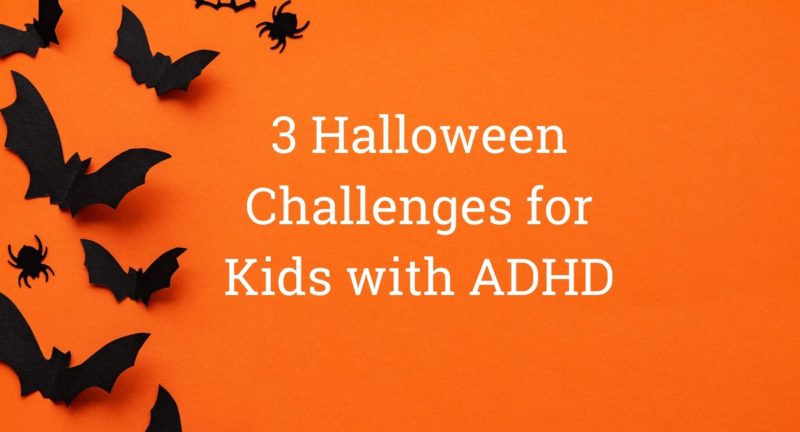
What Are Executive Function Skills?
Do you ever feel like you’ve got a lot of information coming in and out of your brain? That maybe you just need a CEO or perhaps an air traffic controller in your mind to make sense of all the data coming in and out? Well, you do! Your brain uses a special skill set to help you plan, remember phone numbers or instructions, focus your attention, and juggle multiple tasks at once. This special skill set also helps you set goals, control impulses, prioritize tasks, and filter out distractions. What are these skills? They are called executive function skills.
In this post, we’ll cover:
- What executive function skills are
- How they impact child development
- How they affect adults with ADHD
- Strategies to strengthen your executive functions
What Are Executive Function Skills?
Executive function skills are a set of skills that help you with daily life. These mental skills include:
- Working memory
- Emotional self-regulation
- Flexible thinking
- Self-monitoring
- Planning and prioritization
- Organizing
- Task initiation
- Impulse control
Working memory (non-verbal and verbal)
Working memory helps you keep information in your mind. This can be as simple as a phone number, an address, or to recall a story that a friend told you. Non-verbal working memory allows you to remember something that can’t be spoken or written e.g., the scent of baking chocolate chip cookies or the melody of your favorite song.
Emotional self-regulation
Flexible thinking
Sometimes our day doesn’t go just how we think it will. If you’re able to “go with the flow” and adapt to schedule changes, you can thank flexible thinking. Flexible thinking is a skill that allows you to adjust to the unexpected. Children who struggle with flexible thinking may have a temper tantrum when the schedule deviates from what was expected.
Self-monitoring
Self-monitoring is a skill in which you monitor your own progress. This can look like many things:
- A child who suspects he is doing well in school (and is)
- An adult who gauges progress on projects at work and has an accurate impression of how well he or she is doing
If you have weak self-monitoring, you might be surprised by a bad grade.
Planning and prioritizing
Planning and prioritizing refers to the skill set for planning goals, creating the steps to reach that goal, and then accomplishing that goal. Planning and prioritizing is important for all aspects of life including running a household, reaching goals at work, and setting personal goals — including fitness goals.
Organizing
When most people think about organizing, they think about organizing a desk or closet. Planning and organization are two skills that help you keep track of your physical items, but it’s much more than that. Part of staying organized is about organizing your thoughts too!
Task initiation
In the running world, there’s a quote: “the hardest step is just getting out of the door.” This means that a runner may have no problems going for a 5-mile jog, but just getting dressed and out the door can be the most difficult part. This is task initiation at work– the ability to start projects or tasks. This can include:
- Projects at work
- Homework after school
- Household chores or tasks
Impulse control
Sometimes called inhibition, impulse control is best defined as “thinking before acting.” Individuals with weak inhibition may be more prone to blurting out answers, quickly speaking before reflecting, and engaging in risky behaviors.
Executive Function Skills Are Built
No one is born with executive function skills. They are learned! Children can start developing these skills at a very early age. For example, playing memory match games with your child is a fun way to help strengthen his or her working memory. According to the experts at Harvard Health, there are three phases in life in which executive function skills develop most rapidly. These are:
- Young childhood (about 3-5 years old)
- Adolescent years
- Early adulthood
Signs of Trouble with Executive Function Skills
Trouble with executive function can create obstacles for child and adults. Remember, this is a skill set. We aren’t born with these skills, but we grow and develop them over time. However, if individuals with ADHD can struggle with executive function deficits. This can make it hard for you (or your child) to focus, follow directions, manage time, manage intense emotions and more.
You might suspect that you are struggling with executive function if:
- You have trouble managing your time at home or at work
- You frequently misplace your items
- You have trouble organizing your thoughts
- You struggle to manage intense emotions
- You have difficulty transitioning between tasks
- You dislike when routines deviate from the norm
- You quickly forget information that you just read
- You struggle to finish tasks or projects
Children, too, can struggle with these. You might notice that your child has a hard time switching from play time or reading time. You might also notice that she or he shows time blindness.
Your Next Steps
Related Posts
The Signs of Bullying and What Parents Need to Know
Bullying and ADHD - is there a connection? According to a study published in...
3 Halloween Challenges for Children with ADHD
Halloween is right around the corner, and for many kids, it's one of the most...



